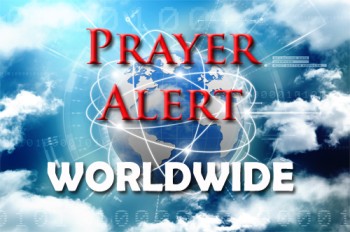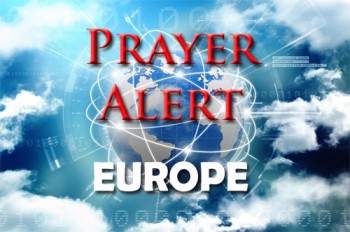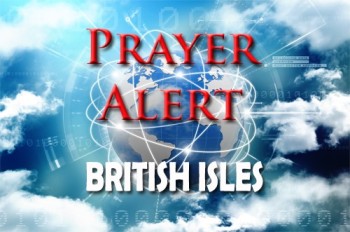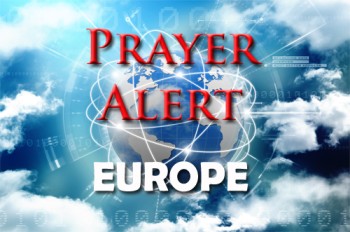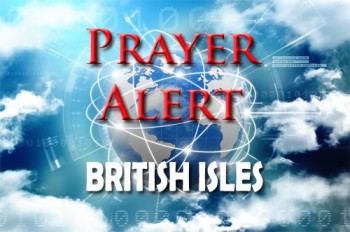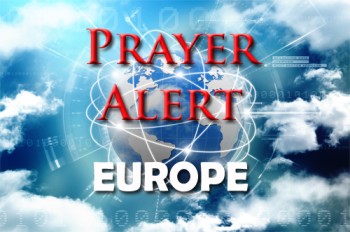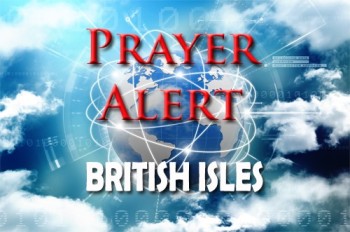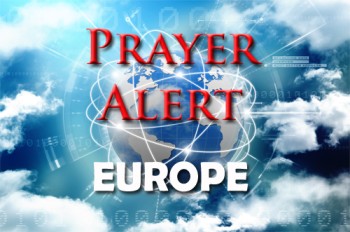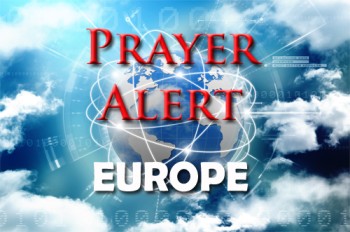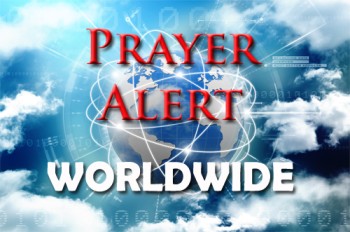Displaying items by tag: migrants
Libya: UN report shows severe abuse of migrants
A United Nations report reveals severe abuse faced by migrants and refugees in Libya. Many fleeing war or poverty hope to cross the Mediterranean, but instead encounter exploitation. Testimonies describe detention in crowded centres, forced labour, trafficking, and repeated violence. Some are intercepted at sea and returned to conditions where dignity and safety are absent. Investigators say criminal networks often operate alongside officials, creating a system where suffering becomes routine. Thousands remain held without due process, and families are left uncertain about missing relatives. The crisis shows how vulnerable people can be when trapped between conflict, poverty, and political instability.
Greece: smugglers blamed for fifteen deaths after speedboat collision
The deaths of fifteen Afghan and Moroccan migrants after a speedboat collision on 3 February with a coastguard boat have raised troubling questions about accountability at sea. The Greek authorities were quick to blame smugglers, saying the migrant vessel ignored warnings and manoeuvred dangerously. Yet critics urge caution, pointing to past incidents where official explanations later unravelled. In 2023, hundreds of migrants died when the fishing boat Adriana sank, initially described as unavoidable, before survivors alleged coastguard involvement. Years later, senior officers now face prosecution. In the current case, no testimonies from survivors have yet been made public and no independent video evidence has been released, so that there is uncertainty about what truly happened in the darkness. Greece remains a major entry route into Europe, while its government pursues a tough deterrence policy praised by some voters but condemned by human rights groups. The tragedy highlights the ongoing human cost of migration and the need for truth, transparency and compassion.
Police vetting scandal: Met hired black child rapist to boost diversity
A damning review has revealed serious failures in the Metropolitan Police’s recruitment and vetting processes, with thousands of officers and staff inadequately checked during a major recruitment drive. The report found that as many as 22,000 recruits between 2019 and 2023 were subject to reduced or incomplete vetting, contributing to at least 131 cases of criminality or misconduct. Among those improperly vetted were two serial rapists, who committed grave crimes while serving as police officers. Investigators concluded that pressure to meet recruitment targets, including efforts to address workforce diversity, led senior leaders to bypass national vetting standards. Thousands of references went unchecked, security clearances were skipped, and some recruits began duties before approvals were complete. Home secretary Shabana Mahmood described the failures as a 'dereliction of duty' which damaged public trust and put citizens at risk.
Migrant boat crossings: France and UK aiming to curb the flow
Emmanuel Macron and Keir Starmer are engaged in critical talks aimed at curbing illegal Channel crossings in small boats. During Macron’s historic state visit to the UK, the first by a French president since 2008, the two leaders are negotiating enhanced border enforcement, including a ‘one in, one out’ migrant returns deal. The plan would allow the UK to return asylum seekers to France in exchange for accepting migrants with family ties in Britain. Macron stressed the importance of EU-level cooperation and reaffirmed the shared responsibility to combat irregular migration with humanity and fairness. Talks also include expanding French police powers to stop boats in shallow waters - a shift already showing signs of implementation. Despite optimism, challenges remain, including opposition from some EU countries. Small boat arrivals in the UK reached a record high in the first half of 2025, which underscores the urgency of finding ways of curbing the flow. Both nations hope for tangible progress in their joint response to people-smuggling networks.
Already over ten thousand migrant Channel crossings this year
Over ten thousand asylum-seekers have crossed the English Channel in small boats so far in 2025 - an increase of 40% compared to the same period in 2024. The rise has intensified political debate over border security and asylum reform. Labour, now in government, has pledged to dismantle people-smuggling networks, treating smugglers like terrorists under a new proposed bill. Measures include a new criminal offence of endangering the lives of others at sea, and imposing travel bans and communication restrictions on suspects. The Home Office says 5,400 migrant attempts have been thwarted this year, and over 24,000 individuals without legal status were removed between July 2024 and March 2025. Opposition parties blame both Labour and the previous Conservative government for policy failures. Reform UK calls for strict deportations, while the Green Party wants to see legal safe routes for asylum-seekers. As the crisis escalates, public frustration grows, with leaders divided over whether deterrence or compassion should define immigration policy.
Asylum applications: EU issues list of ‘safe’ countries
The EU has proposed a new list of seven ‘safe countries of origin’ - Kosovo, Bangladesh, Colombia, Egypt, India, Morocco, and Tunisia - to fast-track asylum applications from citizens of those nations. The assumption is that most of these claims will be denied, allowing decisions within three months. The move is part of ongoing efforts to reform the EU’s asylum process, following the 2015–2016 migrant crisis and persistent low return rates (only 20% of rejected applicants are deported). The plan allows countries to process claims faster if fewer than one in five applicants from a specific country are granted protection. Countries applying for EU membership will also be presumed safe unless affected by war. Italy’s right-wing government welcomed the list, but human rights groups raised concerns, warning that these countries have documented abuses and lack full protections. The EU said that individual case reviews will still be required, despite the fast-track designation. The proposal awaits approval from both the European Parliament and member states.
Channel migrants: over 36,000 arrivals in 2024
In 2024, 36,816 people crossed the English Channel in small boats, a slight increase from 2023’s 29,437 but fewer than the record 45,774 in 2022. Tragically, 2024 became the deadliest year for crossings, with 77 lives lost. On 29 December, a group of 291 migrants arrived, capping a year of heightened risks and debates over immigration policies. The Government continues to collaborate with French authorities to curb crossings, while critics argue for legal, safer routes for those fleeing war and persecution. Enver Solomon of the Refugee Council emphasised the urgent need for policy changes to prevent future tragedies. Labour scrapped the controversial Rwanda deportation plan after winning the election, drawing criticism from opposition leaders who want tougher deterrents. The Home Office highlighted efforts to target people-smuggling gangs and protect lives but acknowledged new challenges as smugglers adapt their methods. More than 150,000 people have crossed the Channel since 2018.
EU: von der Leyen calls for tougher migrant deportations
European Commission president Ursula von der Leyen has suggested that the EU could learn from Italy’s controversial new policy of processing migrants offshore in Albania. She has proposed new legislation to increase deportations, noting that only 20% of irregular migrants ordered to leave EU countries actually do so. Italy’s scheme, which began on 15 October when sixteen migrants were transferred to Albanian processing centres, has sparked criticism from opposition parties and NGOs for being costly and potentially harmful to human rights. The €650 million project excludes vulnerable groups like pregnant women and children. Prime minister Giorgia Meloni defended the scheme as a courageous approach which ‘perfectly reflected the European spirit’. Recently Germany, France, and Poland have tightened their borders and immigration laws, driven in part by security concerns following violent incidents involving failed asylum seekers.
France: migrant deaths in small boats ‘a problem of UK’s making’
The ongoing migrant crisis has reshaped France’s northern coast, especially Boulogne. French rescue workers and officials are witnessing a tragic pattern of migrants fleeing death only to perish in dangerous Channel crossings. While both France and the UK condemn smuggling gangs, their responses differ. British authorities emphasise the criminality of smugglers, but French officials and citizens focus on the migrants’ motives, blaming the UK's loosely-regulated job market as a magnet for desperate people. The smugglers continue to adapt, launching boats from inland and resorting to violence. The French feel burdened by a crisis they see as Britain’s responsibility. Despite its significance, the issue gets less media coverage in France due to its own political challenges. Interior minister Gerald Darmanin continues to call for a new treaty between the UK and the EU; efforts against smugglers alone will not suffice to solve the issue.
Colombia offers legal status to 540,000 Venezuelans
Colombia’s migration agency has said it will give legal status to up to 540,000 Venezuelan migrants who are guardians to minors residing in the country. Colombia has been a destination of choice for millions of Venezuelans seeking to escape the political and economic turmoil of their homeland, while others have used the Andean country as a stepping stone onwards to other nations. More than 2.8 million Venezuelan migrants currently live there, and the measure will benefit adults taking care of some 270,000 minors who have permission to live there. The agency’s director said, ‘It's a special permission to stay, like the previous ones, which fundamentally seeks to integrate guardians, those people who have responsibility for minors who have a temporary protection permit and who live in Colombia’. In 2021, the then government said it would give ten-year legal status to Venezuelans living in Colombia, an offer taken up by many migrants.
